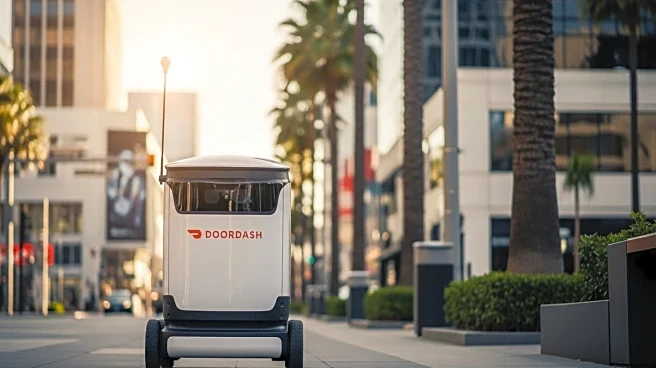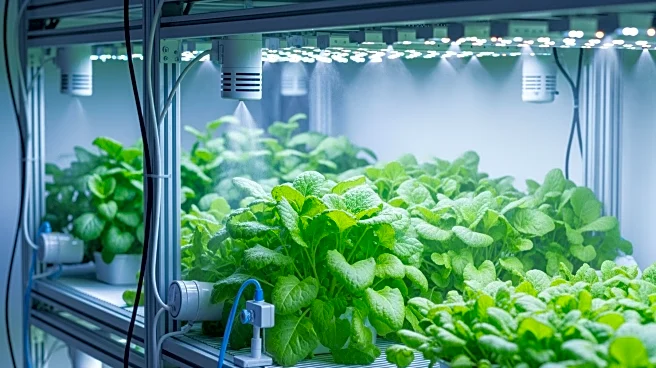What's Happening?
DoorDash has announced a multi-year partnership with Serve Robotics to deploy autonomous sidewalk delivery robots in Los Angeles. This collaboration is part of DoorDash's broader strategy to enhance its delivery capabilities through multimodal solutions. Serve Robotics' bots will operate alongside DoorDash's own autonomous delivery bot, Dot, which is currently being tested in Phoenix. Dot is designed to navigate roads, bike lanes, and sidewalks at speeds up to 20 miles per hour, complementing Serve's sidewalk-focused robots. This initiative follows DoorDash's previous partnerships with other tech companies like Coco and Wing, aiming to expand its delivery network and improve efficiency.
Why It's Important?
The partnership between DoorDash and Serve Robotics signifies a significant shift towards automation in the delivery industry, potentially reducing reliance on human labor for routine deliveries. This move could lead to cost savings and increased efficiency for DoorDash, which reported record profits in early 2025. The use of autonomous robots may also address delivery challenges in dense urban and suburban areas, offering a scalable solution for last-mile logistics. However, this technological advancement may impact gig economy workers who currently perform these delivery tasks, raising questions about job displacement and the future of work in the delivery sector.
What's Next?
DoorDash plans to scale the production of its Dot robots, although specific details have not been disclosed. The company aims to reserve human workers for more complex delivery tasks, suggesting a potential shift in workforce roles. As the partnership with Serve Robotics progresses, DoorDash may expand the use of autonomous robots to other cities, depending on the success of the Los Angeles deployment. Stakeholders, including local governments and labor groups, may respond to these developments, potentially influencing regulatory frameworks and labor policies related to autonomous delivery technologies.
Beyond the Headlines
The integration of autonomous delivery robots raises ethical and legal considerations, such as privacy concerns and liability in case of accidents. Additionally, the cultural acceptance of robots in public spaces may vary, influencing the pace of adoption. Long-term, this trend could lead to a reevaluation of urban infrastructure to accommodate autonomous vehicles, impacting city planning and transportation policies.









